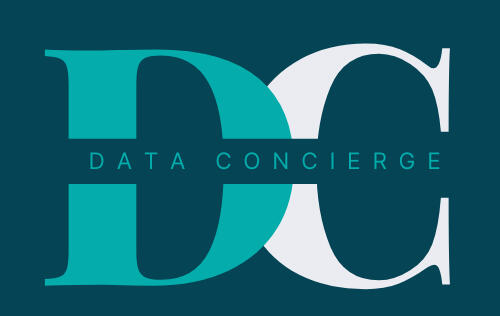- Data Concierge
- Posts
- Are You Using New Data Analytics Tools for the Wrong Reason?
Are You Using New Data Analytics Tools for the Wrong Reason?
Are your data analytics tools really what your stakeholders need?

Hello to all, especially the newcomers! I'm happy that you're here! I just came back from a vacation in Orlando. It was nice to get a break. My editor will give me back my manuscript this week. I'm pretty excited to get the book cover and all the book marketing stuff started in 100% mode.
This week we will dive into tools. I know sometimes you have little control over what tools you use. Sometimes you do. Just keep in mind that everything you do in data analytics is for your stakeholders.
There are many tools out there. One day, you saw data influencers talking about it. Suddenly, you felt missing out. In order to keep up with everyone, you decided to incorporate new tools in your data analytics development.
Instead of using Power BI, you made a case to use Looker because it’s part of the “modern tech stack”.
Is data analytics all about new toys in the field now and not about solving problems anymore?
Data analytics is about positioning the business better and solving their data problems.
How you get there doesn’t matter.
If you can get there with Excel, that’s fantastic. I know some of you’re cringing now. Well, what’s wrong with Excel?
If you can walk across the street, why do you need to take the rocket?
If you really need machine learning and have the resources to do so, do it by all means.
What you need to focus on is how to position the business better for monetization.
When does the word profit become a dirty word?
Here are the 4 ways you can do to achieve stakeholder-driven data analytics:
1) Provide Information That Wasn’t Available Before
Many companies are stuck in the 90s. They have legacy systems, and it’s almost impossible to integrate data from different source systems. They have no insights into what happens across different departments.
With modern cloud architecture, whether it be hybrid or 100%, the business for the first time can do cross-department reporting, enjoy automation, and eliminate hours of manual work.
2) Guide Interpretation of the Results With Stakeholders
Once you’ve transitioned the company to the 21st century, you get to spend more time interpreting the data with your stakeholders. This is a fun collaboration time because stakeholders finally have a break from manual work.
They start to think more strategically about what they want to do with their data. They might want to collect better data. You’re there to coach them and come up with fun use cases that you couldn’t explore before.
3) Use Insights to Monetize
After a few successful use cases and getting beyond just reporting functions, it’s time to focus on monetization.
Now the business gets a taste of what successful data analytics looks like. You can create products or tools that help increase sales or save costs. For example, you can create a sales team scorecard.
If you have the resources, you can analyze big data from vendors and use that to benchmark your own data. You can predict the seasonality of sales, margins of each factory production, etc.
There are endless ways to gain insights. You can even sell your data to other companies if you have enough data volume in your niche.
4) Collaborate to Scale Up
Continue to collaborate with different departments, help people reduce manual work, provide insights, and train staff to achieve self-service.
This is probably my favorite stage, where everyone knows clearly what value data analytics can bring. It’s only a matter of time for them to learn and join your effort. Your company becomes truly data-driven.
If you can focus on what the current data pain points are, you’ll be successful at providing good solutions.
Most data science projects have no clear monetization goals. The value they provide is in limbo.
No matter what role you got hired for in data analytics, focus on solving business problems, not scientific theories.
It doesn’t matter if you solve their problem in Excel, or something “lame” in data analytics as long as your solutions are of sound engineering principles.
Be useful to your stakeholders. Being cool does nothing for them.


If you're interested in talking to me directly, I'm available on Clarity.fm:
I’d love to know how my experience has helped you and the problems you're facing now. Email me at: [email protected]
If you like me to
1) guest post on your platform,
2) provide copy writing service, and
3) help with data project management.
Feel free to book a discovery call via Calendly here.
Follow me on Twitter @MoJVillagran and send me a DM. And don’t forget to share this newsletter with your friends and colleagues.
I'm also on Medium. Read more here:
Join Medium membership and read more of my articles!
Medium does share membership earnings with writers like me. Appreciate the support!
I'm now available for podcast guest appearances! You can find all my details and get in touch to book interviews via this link below.
If you'd like to give better presentations at work and hone your public speaking skills, let Christopher transform you into star speakers.
|
|






Reply